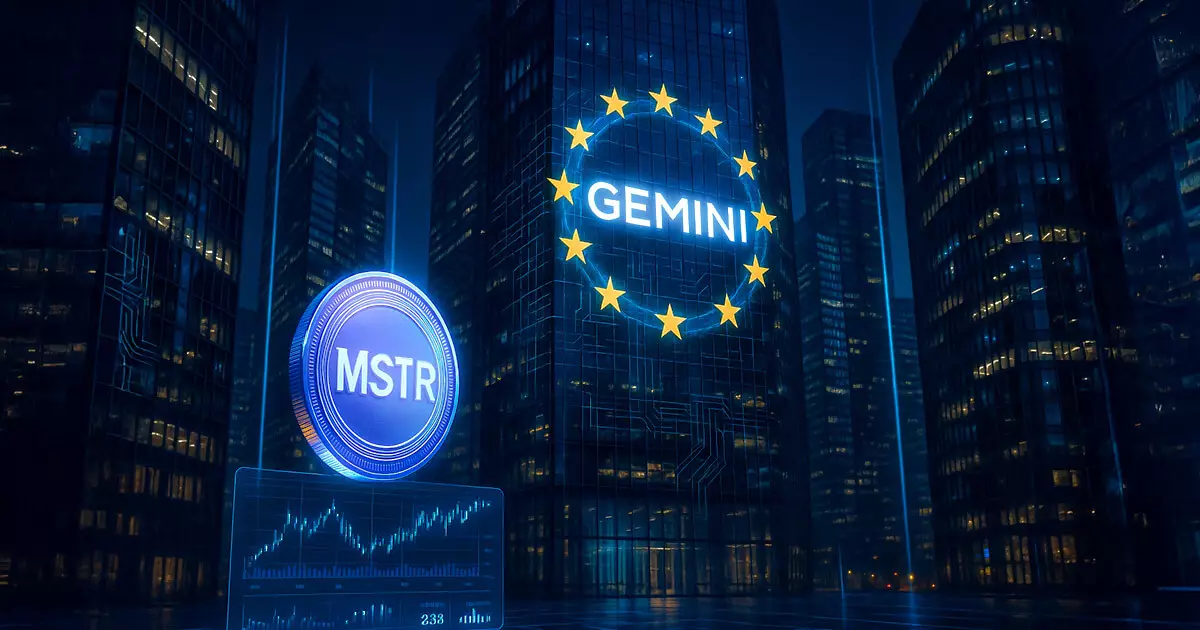Gemini’s recent rollout of tokenized Strategy (MSTR) shares for European investors is being hailed by some as a pioneering leap in financial innovation. On the surface, tokenizing U.S. equities onto blockchain networks seems like a compelling move toward democratizing access and modernizing markets. However, as a center-right-minded observer valuing free enterprise balanced with regulatory prudence, I remain skeptical about whether this emerging model truly delivers the promised benefits or simply repackages traditional financial complexities in blockchain jargon.
The concept of fractional ownership and 24/7 trading availability is appealing, especially for retail investors previously sidelined by geographic and economic barriers. But tokenized stocks, while technically innovative, potentially carry hidden risks around regulatory clarity, custody protections, and market integrity. The devil is in the details: Are these tokens fully equivalent to traditional shares in voting rights and legal protections? Gemini claims parity where “permitted,” which raises flags about uneven investor safeguards and jurisdictional inconsistencies.
The Illusion of Borderless Financial Freedom
Gemini’s ambition to “export U.S. equities across the globe” is confident, but also naïve if taken at face value. While blockchain can reduce friction and lower fees, the global financial ecosystem is heavily tethered to national laws, capital controls, and tax regimes. Merely creating an “on-chain” token does not dissolve these entrenched realities. The assertion that anyone with a smartphone can freely participate glosses over the complexities of compliance, AML/KYC standards, and potential exposure to volatile crypto networks.
Moreover, placing these tokens initially on Arbitrum, a layer-2 network of Ethereum, introduces dependency on still-maturing blockchain infrastructure that remains susceptible to technical glitches and scalability challenges. It’s an intriguing experiment but not yet a robust alternative to regulated brokerage platforms that have decades of experience in managing risk and investor protection.
Tokenized Equities and the Regulatory Tightrope
Gemini’s attempt to operate in “compliance-focused jurisdictions” is commendable and necessary. Unlike some crypto ventures flouting securities laws, adopting a regulated framework aligns with the center-right ethos of lawfulness paired with innovation. But regulatory engagement must be more than just lip service. It demands transparency on how token holders exercise shareholder rights, how corporate actions are handled, and how conflicts between traditional legal structures and blockchain protocols will be resolved.
The temptation to tout tokenized stocks as a “modernization” tool shouldn’t overshadow the ongoing challenges of integrating legacy financial systems with blockchain’s decentralized ethos. Institutional interest notwithstanding, careful navigation is needed to avoid unintended fallout, such as market fragmentation or investor confusion.
Why This Matters: The Trade-Off Between Innovation and Stability
In championing tokenized stocks, Gemini rides the wave of blockchain enthusiasm but must not lose sight of the fundamental trade-off: innovation does not justify sidelining regulatory safeguards or investor protections. The allure of boundaryless finance is real, but the practicalities of delivering on that promise without exacerbating risk or undermining established regulatory frameworks are daunting.
Ultimately, tokenized equities like Gemini’s MSTR tokens pose an exciting frontier but one that calls for sober scrutiny. A center-right approach supports thoughtful innovation grounded in rule of law, market discipline, and fiduciary responsibility—not a reckless rush for disruption at the expense of stability and trust. The true test will come when tokenized stocks face real market shocks, legal disputes, and the inevitable pressures of mass adoption. Until then, this experiment remains as much a challenge to regulators and investors alike as a triumph of technology.
















Leave a Reply